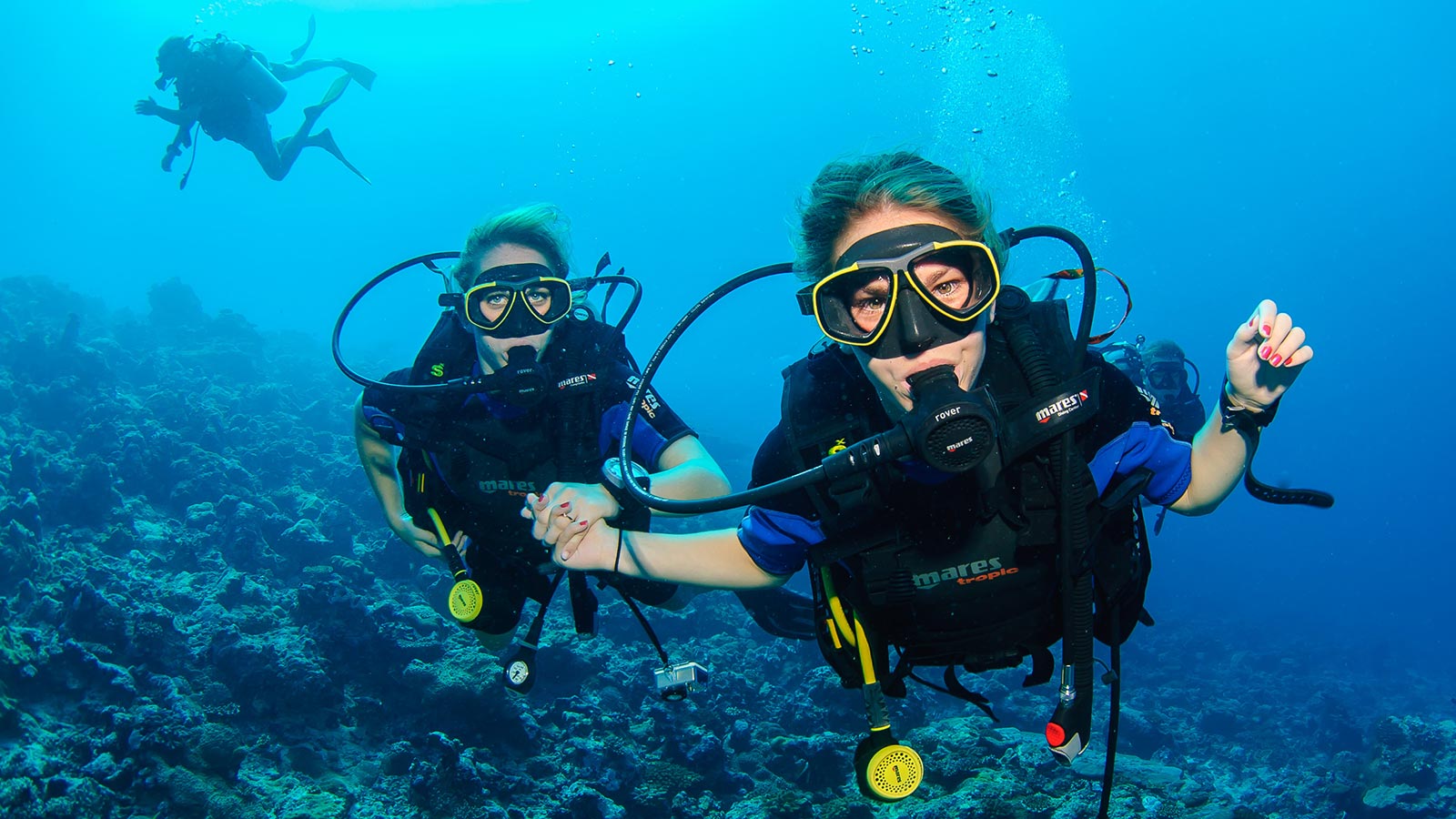Panoramic views of fantastic coral reefs, majestic and frightening shipwrecks and extraordinary marine life are the main attractions for dive lovers. But it’s important to remember the dangers of scuba diving, as some are potentially life threatening.

Health problems that may arise from diving
Oxygen poisoning
Oxygen poisoning is usually only a threat to divers who dive more than 41 meters. Like nitrogen, the body absorbs additional oxygen due to underwater pressure. For most divers this is not a problem, but at extreme depths so much extra oxygen is absorbed that it becomes toxic. Effects range from tunnel vision and nausea to muscle twitching, loss of consciousness, seizures, and drowning.
Oxygen poisoning comes on quickly and without warning. The best advice for avoiding oxygen toxicity is to be aware of your depth limit and stick to it.
How common are the medical problems that can result from diving?
Serious medical problems are not uncommon for scuba divers who only do it for recreation. Although there are millions of dive events annually in the United States, only about 90 deaths are reported each year worldwide. Additionally, fewer than 1,000 divers worldwide need recompression therapy to treat severe health problems related to fantastic diving.
How to avoid the health risks of diving?
The most severe dive-related deaths and injuries occur in novice divers. To be safe, divers must be aware of their physical limits and not push themselves beyond their body’s tolerance.
Another rule to follow is as below.
Do not attempt to dive if you are not comfortable with the scuba diving location, natural conditions, dive group or your dive equipment. During your descent into the depths, you should try to gently equalize the ear and mask pressure.
Do not dive outside the parameters of the limits promised and/or shown on your dive screen.
Don’t hold your breath as you rise above the surface of the water. You should always rise slowly while breathing normally. Air must flow freely in and out of the lungs at all times during your dive.
Don’t panic while diving. If you are confused or scared during a dive, stop, try to relax, and think clearly. You can also get help from your dive buddy or guide.
Familiarize yourself with the underwater environment, including the dangers of marine life. Most sea creatures are not aggressive towards divers and attack rates by wild animals are extremely rare, accidents do happen and a diver should never forget that he is surrounded by wild nature. Learn which fish, corals and other dangerous plants to avoid.
Although there are many risks involved in scuba diving, new divers can minimize the hazards through education and training. The open water certification program emphasizes the physiology of diving, the hazards of scuba diving, and safe diving practices. A trained diver can safely enjoy the sport with minimal health risks fantastic.